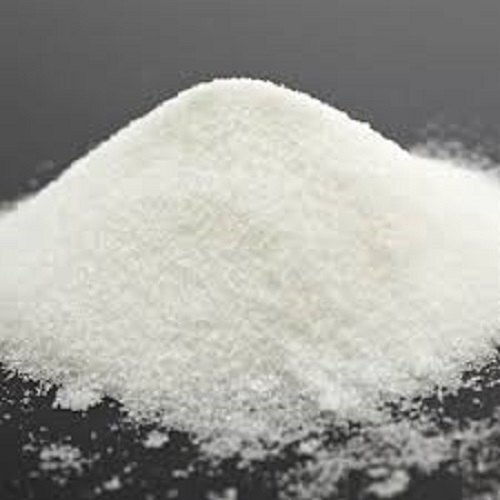Sodium Sulphate
2250 INR/Kilograms
Product Details:
- Melting Point 884 C
- Poisonous YES
- Appearance White powder
- Physical Form Powder
- Storage Room Temperature
- Click to View more
X
Sodium Sulphate Price And Quantity
- 20000 Kilograms
- 2250 INR/Kilograms
Sodium Sulphate Product Specifications
- Room Temperature
- White powder
- YES
- Powder
- 884 C
Sodium Sulphate Trade Information
- 10000 Kilograms Per Day
- 1 Week
Product Description
Sodium sulfate, also known as sulfate of soda or Glauber's salt (historically), is a chemical compound with the formula Na2SO4. It is an inorganic salt, commonly found as a white, crystalline solid at room temperature. Sodium sulfate is soluble in water and its aqueous solution is alkaline.
Sodium Sulphate Properties:
1. Physical State: Sodium sulfate typically exists as a white, odorless, crystalline solid at room temperature.
2. Solubility: It is highly soluble in water. At 32.4 degree centigrade, its solubility in water reaches approximately 49 g/100 mL. The solubility increases with temperature.
3. Melting Point: Sodium sulfate has a relatively high melting point of 884 degree centigrade.
4. Density: The density of sodium sulfate varies depending on the crystalline form and hydration state. Anhydrous sodium sulfate has a density of around 2.664 g/cm3
5. Hydrates: Sodium sulfate forms several hydrates, including the decahydrate (Na2SO4 10H2O), known as Glauber's salt, and the heptahydrate (Na2SO4 7H2O).
6. pH: The aqueous solution of sodium sulfate is slightly alkaline.
7. Chemical Stability: Sodium sulfate is relatively stable under normal conditions, but it may decompose at high temperatures to produce toxic fumes, such as sulfur oxides.
8. Electrolyte: In aqueous solution, sodium sulfate dissociates into sodium ions (Na+) and sulfate ions, making it an electrolyte.
9. Hygroscopicity: Anhydrous sodium sulfate has hygroscopic properties, meaning it can absorb moisture from the air.
10. Reactivity: It is non-flammable and non-reactive with most common materials under normal conditions.
Sodium Sulphate Applications:
1. Detergents and Cleaning Products: Sodium sulfate is a common ingredient in detergents and cleaning products. It acts as a filler, bulking agent, and viscosity controller in powdered detergents and laundry powders.
2. Textile Industry: In the textile industry, sodium sulfate is used in dyeing processes. It helps to evenly distribute dyes and improve color fastness by preventing dye migration. Additionally, it aids in the removal of excess dye from fabrics during the dyeing process.
3. Paper and Pulp Industry: Sodium sulfate is utilized in the paper and pulp industry as a processing aid and bleaching agent. It helps to break down lignin and improve the brightness and strength of paper products.
4. Glass Manufacturing: Sodium sulfate is added to glass formulations to lower the melting point of silica and improve the workability of the glass melt. It also helps to reduce bubble formation and increase the clarity of glass products.
5. Chemical Synthesis: Sodium sulfate is a precursor for the production of various chemicals. It is used in the synthesis of sodium sulfide, sodium silicate, and sodium carbonate, among other compounds.
6. Food Industry: Sodium sulfate may be used as a food additive in certain food products, primarily as an anti-caking agent and stabilizer. It helps to prevent the clumping of powdered ingredients and improve product texture.
7. Pharmaceuticals: Historically, sodium sulfate has been used as a laxative in pharmaceutical formulations. However, its medicinal use has declined with the availability of safer alternatives.
8. Oil and Gas Industry: Sodium sulfate may be employed in the oil and gas industry for various purposes, including drilling fluid additives and desulfurization processes.
9. Water Treatment: In some cases, sodium sulfate is used in water treatment applications, particularly in combination with other chemicals for scale inhibition and corrosion control.
Sodium Sulphate FAQ:
Q. What is sodium sulfate?
Ans: Sodium sulfate, with the chemical formula Na2SO4, is an inorganic compound that occurs as a white, crystalline solid. It is commonly used in various industrial applications.
Q. What are the common uses of sodium sulfate?
Ans: Sodium sulfate is utilized in detergent manufacturing, textile dyeing, paper and pulp production, glass manufacturing, chemical synthesis, and as a food additive, among other applications.
Q. Is sodium sulfate safe?
Ans: Sodium sulfate is generally considered safe when used according to established guidelines and regulations in various industries. However, like any chemical substance, it should be handled with care to avoid potential hazards.
Q. What are the hazards associated with sodium sulfate?
Ans: While sodium sulfate is not considered highly hazardous, exposure to large amounts of dust or ingestion of significant quantities may cause irritation to the respiratory tract or gastrointestinal discomfort. It can also be irritating to the eyes and skin.
Q. Is sodium sulfate environmentally friendly?
Ans: Sodium sulfate is not considered particularly harmful to the environment when used in accordance with regulations. However, its disposal should be managed responsibly to prevent potential environmental contamination.
Q. Can sodium sulfate be recycled?
Ans: Yes, sodium sulfate can be recycled and reused in various industrial processes. Recycling methods include crystallization, precipitation, and ion exchange.
Q. Is sodium sulfate soluble in water?
Ans: Yes, sodium sulfate is highly soluble in water. Its solubility increases with temperature.
Q. Can sodium sulfate be used in food products?
Ans: Yes, sodium sulfate is approved for use as a food additive by regulatory agencies in many countries. It is primarily used as an anti-caking agent in powdered food products.
Tell us about your requirement

Price:
Quantity
Select Unit
- 50
- 100
- 200
- 250
- 500
- 1000+
Additional detail
Mobile number
Email






 Send Inquiry
Send Inquiry Send SMS
Send SMS Call Me Free
Call Me Free
